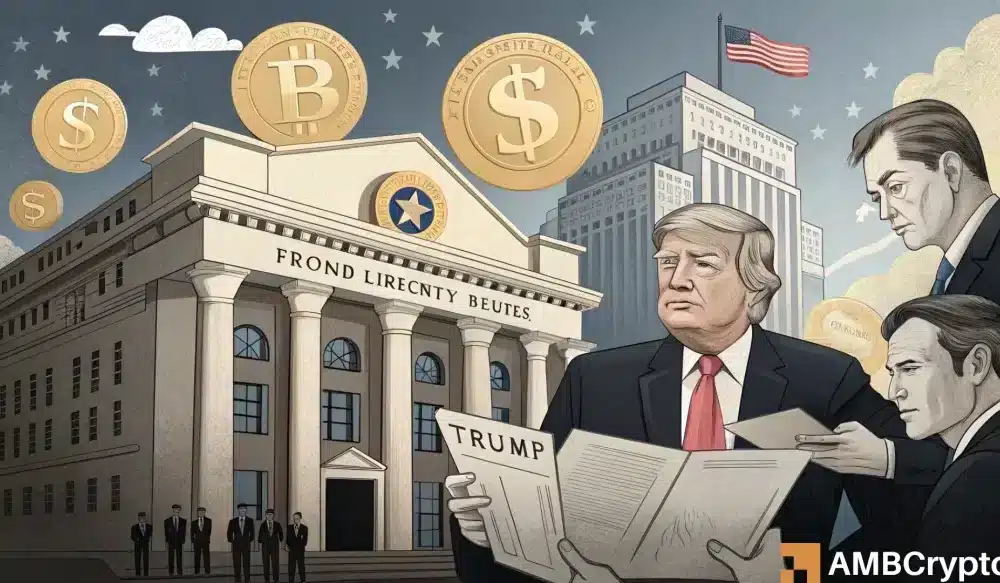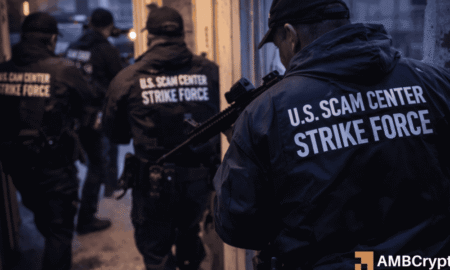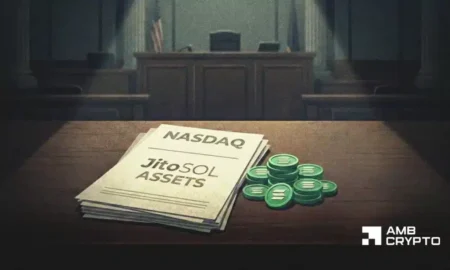Lawmakers Urge SEC to Investigate Trump’s Crypto Project Amidst Regulatory Concerns
In an unexpected turn of events, former U.S. President Donald Trump has entered the digital asset world with his cryptocurrency project, World Liberty Financial. With over half a billion dollars already raised, the venture has drawn attention not only for its financial ambitions but also for potential conflicts of interest related to the Trump family. This comes at a time when the cryptocurrency market is experiencing a significant rise, particularly with the launch of WLFi’s USD1 stablecoin, which has raised regulatory eyebrows amid a surge in stablecoin reserves to $1.6 billion.
As news broke of Trump’s foray into cryptocurrency, Democratic lawmakers quickly raised alarms about the implications of his involvement. They have urged the U.S. Securities and Exchange Commission (SEC) to conduct a thorough investigation of World Liberty Financial and assess whether conflicts of interest could compromise the regulatory environment. The lawmakers emphasized the need for transparency and accountability, per a letter sent to SEC acting Chairman Mark Uyeda. This request acknowledges the challenging landscape for oversight given the current Republican majority in Congress, which limits the scope of any formal investigations.
Despite the push for scrutiny from the Democratic side, executives associated with World Liberty Financial defended the project. A spokesperson for the venture vehemently opposed the criticisms, stating that Senator Elizabeth Warren’s actions amount to an abuse of governmental power aimed at undermining the Trump family. The White House also weighed in, asserting that Trump’s assets are placed in a trust managed by his children, which purportedly mitigates any potential conflicts. This robust defense positions Trump’s crypto initiative against a backdrop of increasing political contention regarding the regulation of cryptocurrencies in the United States.
The debate surrounding Trump’s entry into the crypto market has intensified as World Liberty Financial has been rolling out its USD1 stablecoin. However, apprehensions persist concerning the project’s financial integrity and regulatory compliance, given its rapid fundraising amid the backdrop of a burgeoning $1.6 billion stablecoin market. This situation amplifies the necessity for regulatory frameworks capable of addressing the growing complexity of cryptocurrency operations, especially as Congress debates the proposed GENIUS Act aimed at enhancing oversight in the sector.
While some view Trump’s move into cryptocurrency as a strategic pivot following backlash faced by the family business, critics argue that it raises ethical questions regarding financial influence and transparency. The SEC’s role in maintaining oversight becomes crucial as lawmakers express concerns that Trump’s financial interests could sway regulatory actions. As pressure mounts on the SEC to act, the agency’s response will likely shape not only the future of Trump’s venture but also set a precedent for regulatory approaches to cryptocurrency amid rising public interest.
In summary, the intersection of politics and cryptocurrency has never been more pronounced, particularly as high-profile figures like Donald Trump engage in the digital asset arena. The ongoing dialogue about regulation and oversight will undoubtedly influence the future of projects like World Liberty Financial, as well as broader trends within the cryptocurrency market. As the situation unfolds, stakeholders across the industry and the regulatory landscape will be keenly observing the implications of Trump’s crypto endeavors and the potential for increased scrutiny moving forward.
This complex web of politics and finance underscores the evolving nature of cryptocurrency regulation and the critical need for legislative frameworks that can accommodate its growth while protecting consumers and maintaining market integrity.
















